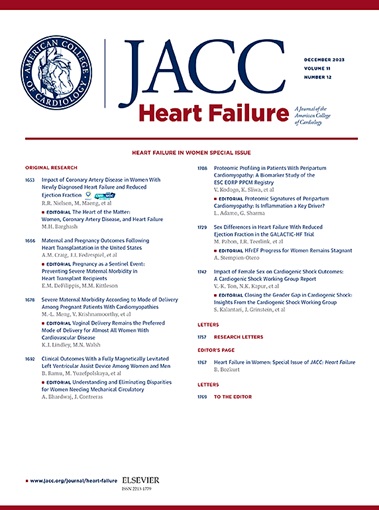当代抗体介导的心脏移植排斥反应
IF 11.8
1区 医学
Q1 CARDIAC & CARDIOVASCULAR SYSTEMS
引用次数: 0
摘要
心脏移植仍然是晚期心力衰竭患者的最终治疗方法。急性和慢性排斥反应影响短期和长期的结果。抗体介导的排斥反应(AMR)仍然是移植失败和死亡的主要原因。根据患者特征、心内膜活检解释的差异以及治疗AMR的临床阈值的差异,报道的AMR发病率差异很大。人们越来越认识到人类白细胞抗原、供体特异性抗体和分子诊断(如供体来源的无细胞DNA或植入物内基因表达)在支持AMR诊断方面的作用,而不仅仅是组织病理学。此外,AMR患者的治疗管理以前侧重于抑制炎症,去除或中和病理抗体,以及阻断产生抗体的细胞。新的治疗方法现在也针对补体介导的损伤、共刺激阻断和特异性细胞因子介导的炎症途径。这一立场声明强调了心脏移植后AMR的当代诊断和治疗方法。本文章由计算机程序翻译,如有差异,请以英文原文为准。
Contemporary Antibody-Mediated Rejection in Heart Transplantation
Heart transplantation remains the definitive therapy for patients with advanced heart failure. Acute and chronic rejection affect both short- and long-term outcomes. Antibody-mediated rejection (AMR) remains a leading cause of graft failure and mortality. The reported incidence of AMR varies widely, on the basis of patient characteristics, variability in the interpretation of endomyocardial biopsy, and differences in clinical thresholds at which to treat AMR. There has been increased recognition of the role of human leukocyte antigen donor-specific antibodies and molecular diagnostics, such as donor-derived cell-free DNA or intragraft gene expression, in supporting the diagnosis of AMR beyond histopathology alone. Furthermore, therapeutic management of patients with AMR previously focused on quelling inflammation, removing or neutralizing pathological antibodies, and blocking antibody-producing cells. Novel therapies now also target complement-mediated injury, costimulatory blockade, and specific cytokine-mediated inflammatory pathways. This position statement highlights contemporary diagnostic and therapeutic approaches for AMR after heart transplantation.
求助全文
通过发布文献求助,成功后即可免费获取论文全文。
去求助
来源期刊

JACC. Heart failure
CARDIAC & CARDIOVASCULAR SYSTEMS-
CiteScore
21.20
自引率
2.30%
发文量
164
期刊介绍:
JACC: Heart Failure publishes crucial findings on the pathophysiology, diagnosis, treatment, and care of heart failure patients. The goal is to enhance understanding through timely scientific communication on disease, clinical trials, outcomes, and therapeutic advances. The Journal fosters interdisciplinary connections with neuroscience, pulmonary medicine, nephrology, electrophysiology, and surgery related to heart failure. It also covers articles on pharmacogenetics, biomarkers, and metabolomics.
 求助内容:
求助内容: 应助结果提醒方式:
应助结果提醒方式:


